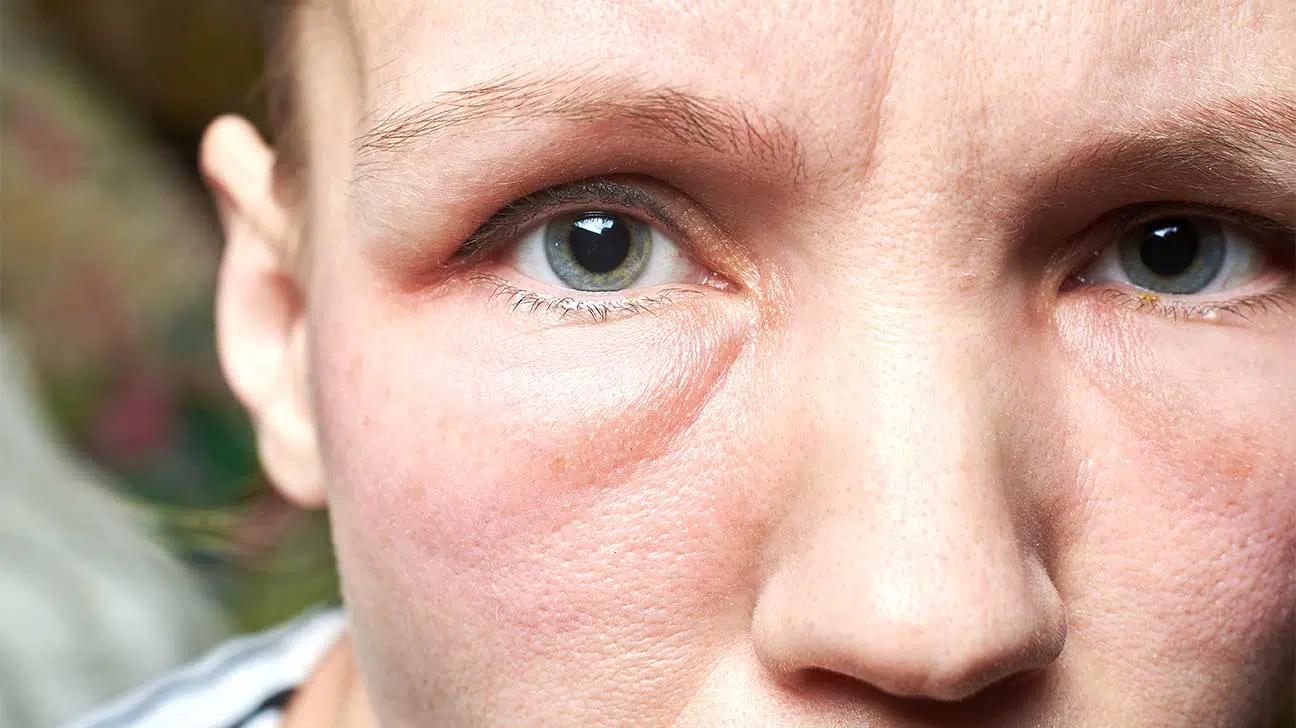Coke Bloat: Puffy Face After Cocaine Use
Many people feel bloated after using cocaine. This phenomenon is often called “coke bloat,” and may occur as a result of dehydration or the narrowing of blood vessels from cocaine use.

Cocaine is an illegal stimulant drug made from the coca plant, and people who use it often develop a cocaine addiction.
Cocaine creates an energetic, euphoric “high.” People who use it may feel more social and less fatigued. However, cocaine has negative side effects on the body, as well.
One side effect of cocaine is called “coke bloat,” or puffiness in and around the face.
Coke bloat may occur after any amount of cocaine abuse, including the first time somebody uses cocaine.
Cocaine As A Vasoconstrictor
One reason for coke bloat is vasoconstriction, or the narrowing of the blood vessels.
Vasoconstriction creates several cardiovascular difficulties, including high blood pressure.
Coke bloat is one of the lesser-known outcomes of vasoconstriction. As the blood vessels narrow, the oxygen delivery to the tissues is reduced that leads to tissue damage and inflammation, which can contribute to swelling and puffiness.
Dehydration And Bloating
Cocaine use, like other kinds of stimulant drug use, may cause dehydration. Cocaine can elevate body temperature, which leads to excessive sweating.
Cocaine also impairs decision-making skills, which means that a person who uses cocaine may not drink enough water while using the substance.
When the body becomes dehydrated, it retains as much fluid as possible, and that fluid retention often causes facial puffiness.
How Cocaine Additives Contribute To Bloating
Although coke bloat may be caused by the cocaine itself, it may also be caused by additives cut with cocaine. Both powder cocaine and crack cocaine usually contain additives.
One common additive is levamisole, an anti-parasite drug for livestock. Though levamisole is intended for animal health care, it often finds its way into street cocaine.
One side effect of levamisole is swollen glands, including swelling of the glands around the face.
Other Reasons For Coke Bloat
Cocaine additives and blood supply interruptions are two of the most common reasons for coke bloat. However, this kind of substance abuse may cause bloating for other reasons, too.
These reasons include snorting cocaine, peritonitis, and cocaine-induced weight loss.
Snorting And Facial Swelling
Among people who use cocaine, snorting is one of the most common forms of drug abuse.
Cocaine has temporary anesthetic properties, but it can also act as an irritant when snorted through the nose.
Snorting cocaine may injure the septum and nasal passages, which can create swelling in the nose. A swollen nose may heighten the appearance of facial puffiness.
Cocaine Use And Peritonitis
Cocaine use may cause abdominal complications, including peritonitis. This condition causes swelling and inflammation in the abdominal cavity.
Generally, peritonitis causes bloating in the abdominal area. However, it can also cause more generalized bloating.
Weight Loss And Bloating
As a stimulant, cocaine reduces the appetite, so people who use cocaine may not consume enough calories throughout the day.
Drug addiction in general may also cause weight loss. People with an addiction may become more focused on their substance use than getting enough nutrition.
No matter the reason, weight loss can make any bloating appear more prominent.
How To Treat Coke Bloat
Coke bloat usually recedes as the cocaine leaves the body. However, if a person has a cocaine use disorder, they may notice cocaine withdrawal symptoms along with reduced bloating.
The best treatment for coke bloat is to get support and safely detox from cocaine at a drug rehab center. Treatment centers help people reduce their dependence on cocaine.
As a result, coke bloat and other physical effects of cocaine addiction will be reduced.
Find Addiction Treatment And Recover From Cocaine Addiction
Cocaine addiction is a complicated mental health disorder. However, it can be treated. Spring Hill Recovery Center offers several levels of treatment for cocaine abuse.
If you or a loved one might have a substance use disorder, contact Spring Hill Recovery Center to learn more about your options today.
- National Institute On Drug Abuse — Cocaine Research Report https://nida.nih.gov/publications/research-reports/cocaine/what-cocaine
- National Library Of Medicine — Levamisole: A High Performance Cutting Agent https://www.ncbi.nlm.nih.gov/pmc/articles/PMC6474566/
- National Library Of Medicine — Life Threatening Abdominal Complications Following Cocaine Abuse https://www.ncbi.nlm.nih.gov/pmc/articles/PMC1360478/
- National Library Of Medicine — Vascular Disease In Cocaine Addiction https://www.ncbi.nlm.nih.gov/pmc/articles/PMC5757372/


